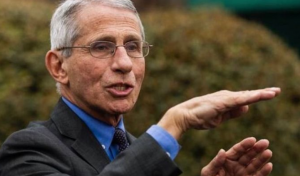A total of 141 people died due to COVID-19 in Pakistan on Wednesday, one of its highest tallies since May, reports Associated Press. More than 4,000 new coronavirus infections were also reported in the past 24 hours, according to Pakistan’s National Command and Operations Center.
The surge comes amid widespread violations of social distancing and new rules regarding vaccinations.
Also Read| Children recover from COVID quickly, less prone to long-lasting symptoms: Study
On Tuesday, Pakistan announced to make vaccinations of teachers, professors, school staff and students older than 17 mandatory and unvaccinated people will be barred from entering educational institutions starting October 15.
From October 15, unvaccinated people also will not be allowed to use public transport or enter shopping malls.
Vaccination programme for those aged between 17 and 18 years will start from the September 1.
ALSO READ: Will a third COVID-19 wave in India be more severe on children?
Since the beginning of the COVID-19 pandemic in 2020, Pakistan has so far reported more than 1,134,000 infections and 25,220 deaths.
The government started its COVID vaccination drive in February and saw a slow response but picked up pace later. More than 46 million people in Pakistan have received at least one dose of the vaccine.
Also Read| New York Governor Kathy Hochul to mandate masks in schools
According to the authorities, millions of people in Pakistan are still unwilling to receive a shot despite a surge in new infections.
According to Reuters, the country on Tuesday received $2.75 billion from the International Monetary Fund (IMF). The fund is a part of Special Drawing Rights (SDR) programme that supports low-income countries hit by the coronavirus.
Special Drawing Rights (SDR) programme is part of a $650 billion global programme. The aid will increase Pakistan’s foreign reserves. The country is currently under pressure from a rise in the current account deficit and falling remittances from workers based abroad.
Pakistan entered a $6 billion IMF programme in 2019, a sixth review of which has been pending since March.
Earlier this year, Pakistan Prime Minister Imran Khan and his wife Bushra Bibi tested positive for coronavirus. Pakistan President Arif Alvi and Defence Minister Pervaiz Khattak had also tested positive for COVID-19 in March 2021.






